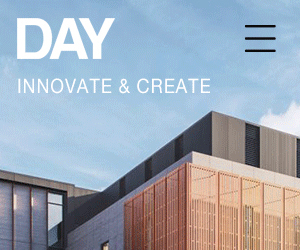Asset management is typically a more -common topic for asset-intensive industries.
Asset management is a highly-systematic, cost-effective process for acquiring, planning, deploying, maintaining, operating, and disposing of the physical assets of the healthcare organisation
However, in recent years the healthcare industry, including the NHS, has adopted it to become more effective.
Recently,the NHS has even published an asset management Good Practice Guide that any healthcare organisation can use to improve their services.
And the trend is not only prevalent in the public sector. It is also being seen among private healthcare operators like BMI, Bupa and other leading organisations, who are adopting efficient asset and inventory management practices.
But why is asset management gaining popularity in hospitals?
What is asset management in healthcare?
In a hospital setting, asset management, or enterprise asset management (EAM), can be described as a highly-systematic, cost-effective process for acquiring, planning, deploying, maintaining, operating, and disposing of the physical assets of the healthcare organisation.
What asset management really does is to provide a healthcare facility with an asset registry to track and manage its inventory. This helps to reduce costs and improve patient care and operational efficiencies.
An asset management programme for the healthcare industry typically includes:
- Hospital facilities management – This covers everything from layout, ward management, facilities management, operation care, intensive care, and even the parking. Catering, cleaning, building maintenance, environmental services, security, and reception are some of the key areas that are covered under facilities management. And optimum utilisation of physical assets to enhance patient care is an integral part of efficient hospital management
- Medical waste and equipment disposal – Hospitals are responsible for the medical waste they produce and they need to make sure it will not have negative consequences for the public and the environment. There are different types of medical waste which require varied disposal techniques. Sharps, infectious waste, radioactive, pathological, pharmaceuticals, chemical, genotoxic waste, and general non-regulated medical waste are some of the principal types of waste the industry handles. An effective asset management programme helps hospitals to standardise waste management procedures as well as keep an audit trail of how their waste was disposed of
- Medical inventory management – From patient care items like beds and chairs, to operating inventory like blood-pressure checkers; it is imperative to know the location of each piece of equipment or item. An effective asset management programme helps hospitals to know the stock levels of each inventory item, its location, and status. Quite often, asset-tracking capabilities like barcoding are used to track hospital inventory. Having accurate and up-to-date visibility of inventory items helps to reduce ‘where-is-the-item’ situations, helps with asset depreciation calculations, and facilitates bulk buying, which typically offers significant cost savings
- Medical equipment maintenance management – Medical equipment aids doctors and patients with diagnosis, treatment, and aftercare procedures. From simple medical equipment like blood pressure monitors, to complex MRI scanners; the equipment requires planned, preventative, and reactive maintenance. This typically means medical equipment engineers need access to operational data and quite often also need to know operating threshold levels. While most equipment operators will provide maintenance as part of their support contract, there are occasions where large-scale hospitals require their own maintenance programmes. Modern asset management systems allow hospitals to ensure all their medical equipment has optimum uptime and is ready to assist with patient care
From patient care items like beds and chairs, to operating inventory like blood-pressure checkers; it is imperative to know the location of each piece of equipment or item
An example of where asset management improvements have paid dividends is at Cambridge University Hospitals NHS Foundation Trust which recently invested in RFID technology to track 32,500 assets.
The hospital now has an on-demand view of each piece of medical equipment in its facilities.
And the Royal Shrewsbury Hospital is using asset tracking and management technologies to track 1,309 pieces of medical equipment, including 849 beds.




